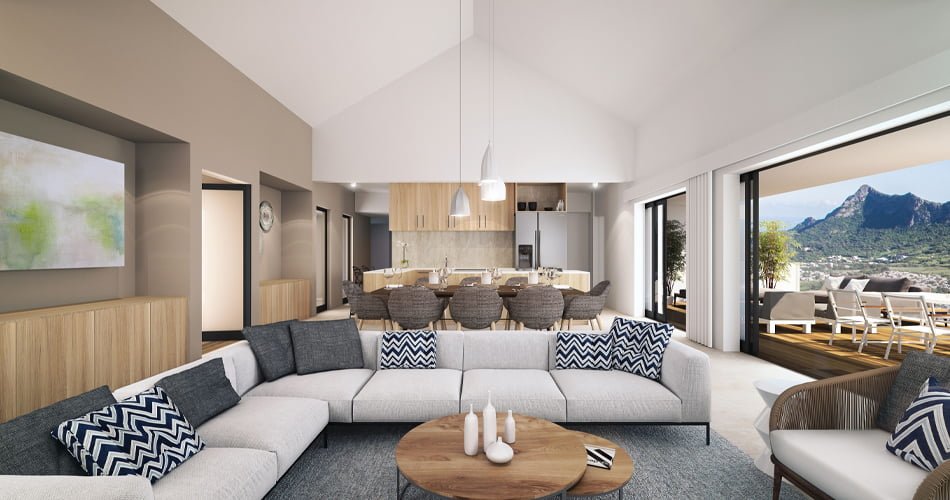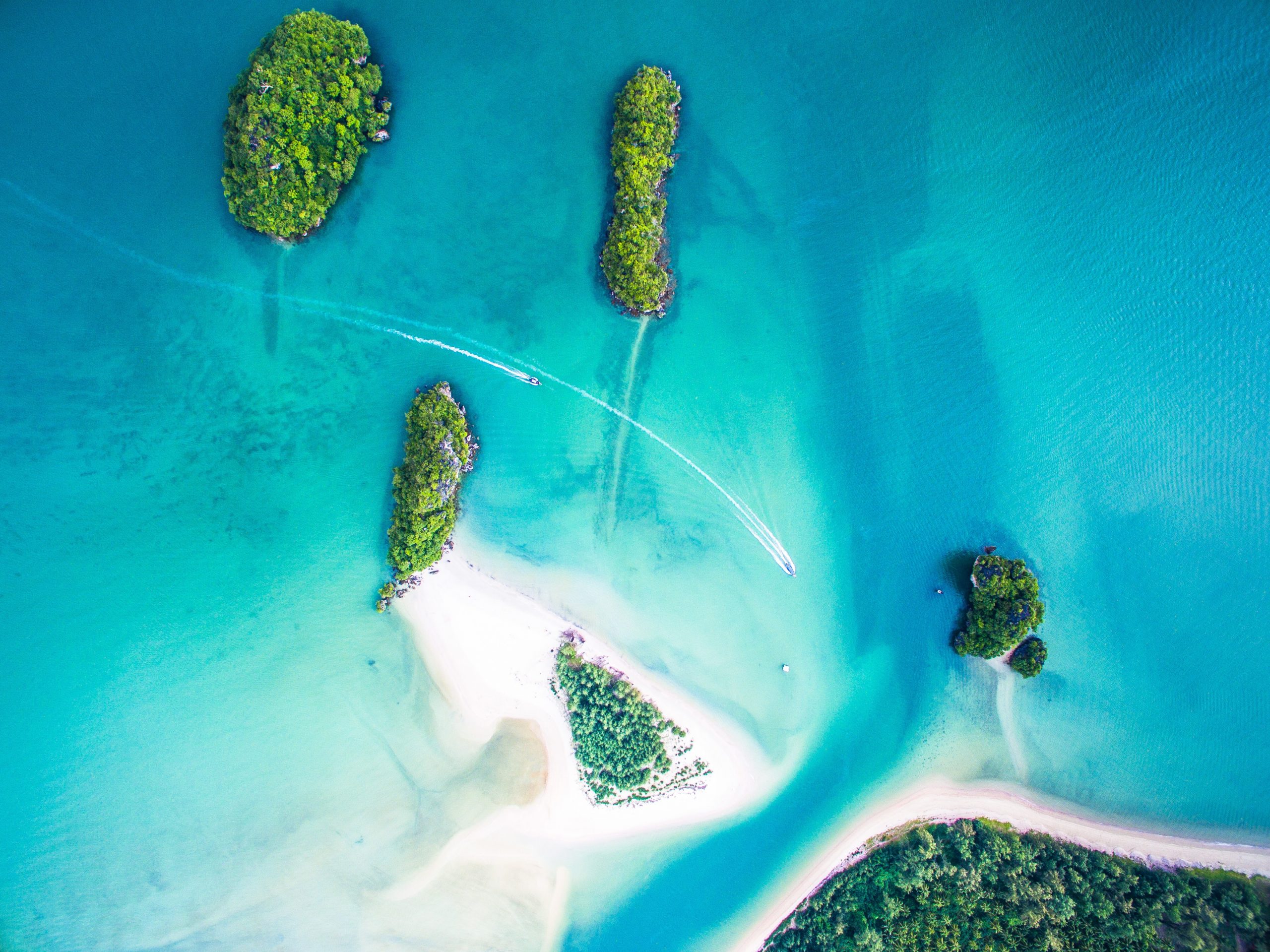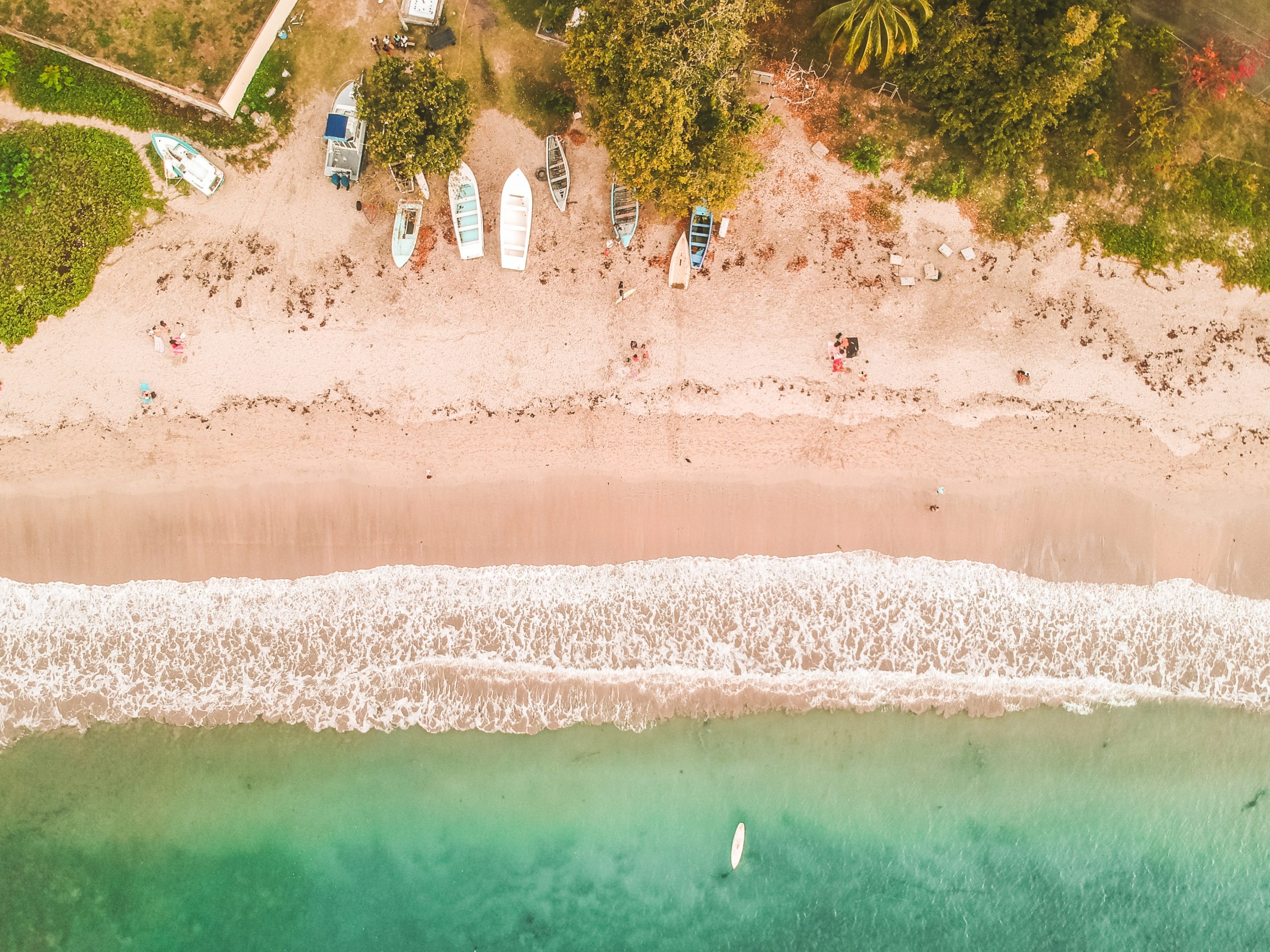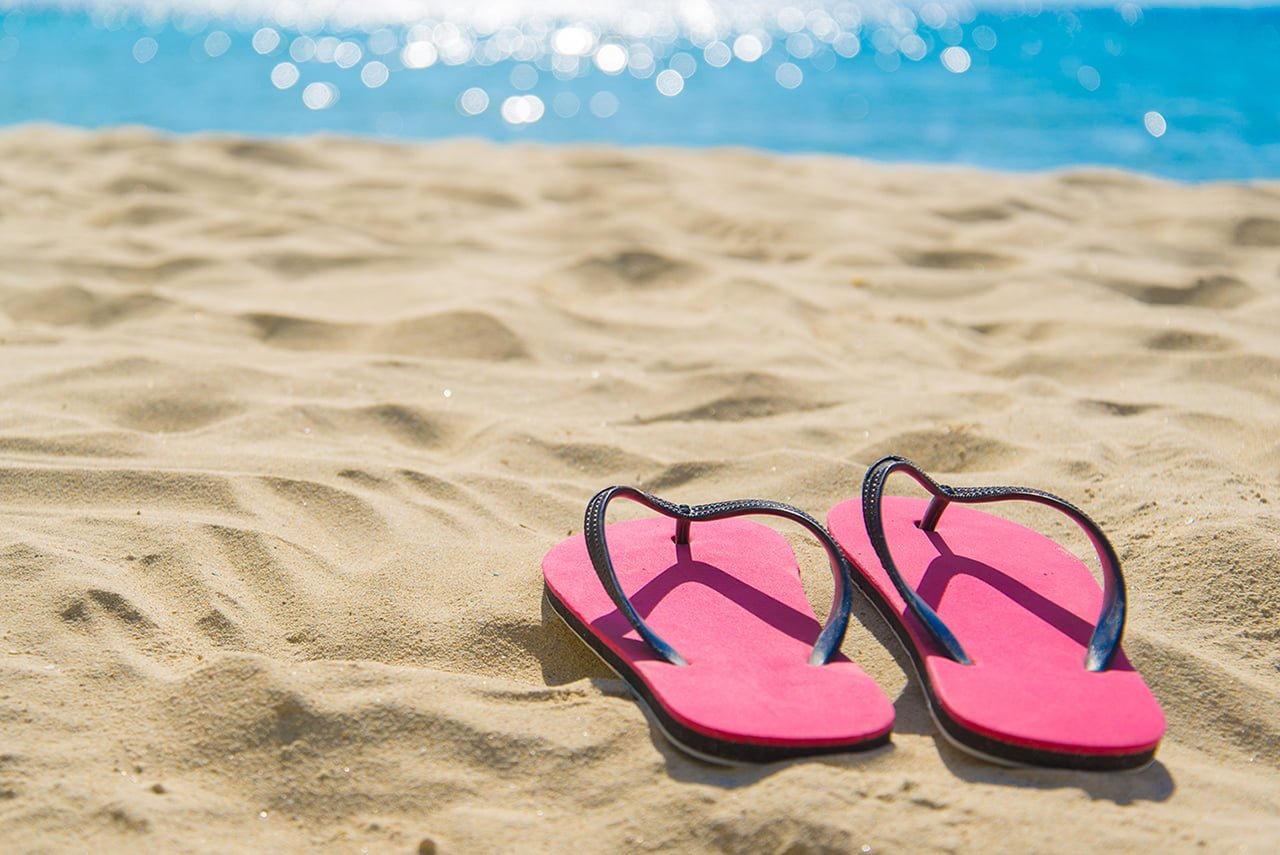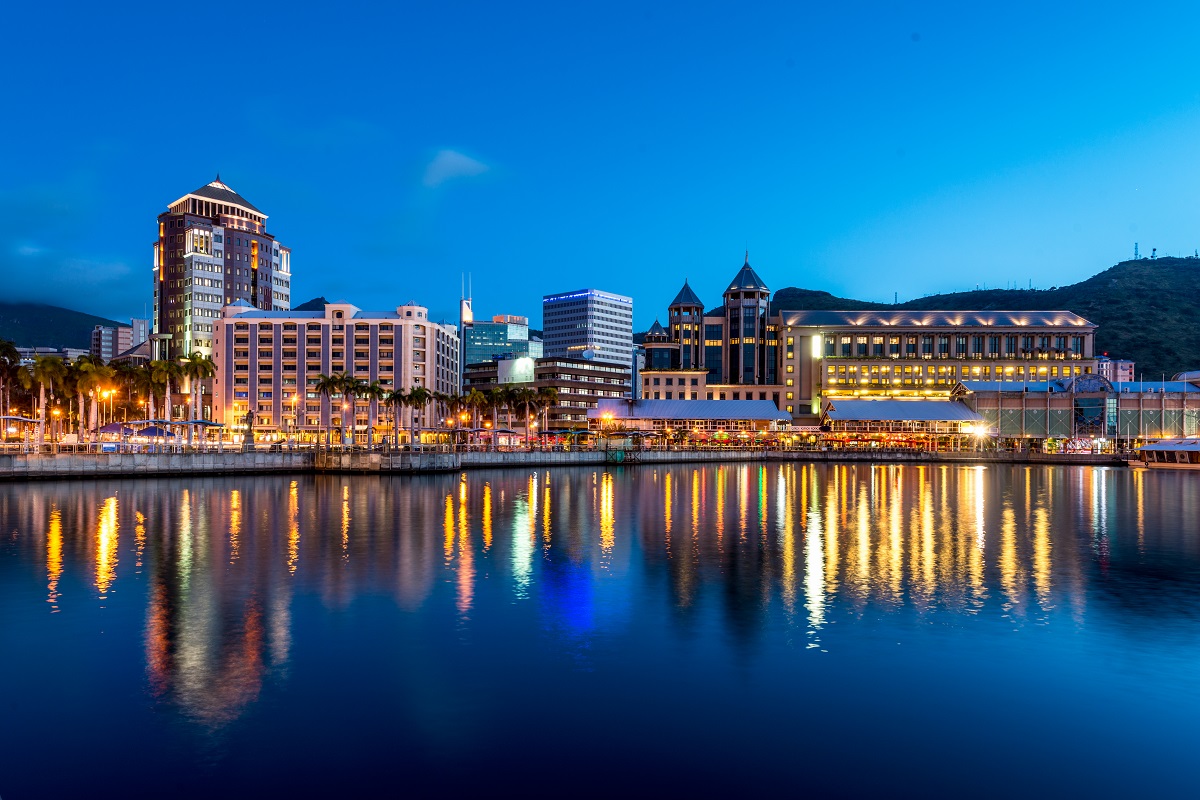
An increasing number of young South Africans are looking to find out more about higher education options in Mauritius. What are the facilities available? Are Mauritian qualifications recognised worldwide? How accessible is the country as a destination for tertiary education? To answer these questions and more, we have put together a comprehensive article with relevant information that will hopefully support decision-making and possibly make Mauritius a consideration for your children’s higher education.
Until early 2020, this sector in Mauritius was governed by the Tertiary Education Commission (TEC), which has since been replaced by the Higher Education Commission (HEC) and the Quality Assurance Authority (QAA). This decision is in line with the Government’s strategy to expand the country’s capacity to accommodate both local and international students and become a regional hub for quality higher education, which is of utmost importance.
Quality public tertiary education
The now 55-year-old University of Mauritius was the pioneer in the field and since then, many other institutions have emerged in the country, which currently counts 15 public and 50 private tertiary-level establishments.
With around 12,000 undergraduate, postgraduate and doctorate students, the University of Mauritius delivers international-standard programmes. The institution has 5 faculties, including the Faculties of Agriculture, Engineering, Law and Management, Science and Social Studies and Humanities, as well as the Centre of Information Technology and Systems, the Virtual Centre for Innovative Learning Technologies and the Centre for Professional Development and Lifelong Learning.

The University of Mauritius is an averagely selective institution with an admission rate range of 70-80% for locals. The acceptance of international students is based on academic performance with yearly tuition fees ranging from US$5,000 to US$7,500. Though it does not fare as well as the top South African universities, it has been moving up the international rankings in recent years to just over 2,000th in the world. Certain degrees are also offered as dual qualifications in collaboration with the University of Arizona (104th in the Times Higher Education University Rankings), at an approximate cost of US$11,000.
The University Of Technology, Mauritius is another public institution that is attracting increasing numbers of overseas students. It offers undergraduate programmes in the following Schools: Business, Management and Finance; Innovative Technologies and Engineering; Sustainable Development and Tourism & Health Sciences.
The country’s first ISO 9001:2015 certified higher education institution, the Open University of Mauritius attracts more than 5,000 students yearly and offers qualifications ranging from short employability courses to doctorate programmes. The university has also established partnerships with international institutions like the University of South Africa, Imperial College London, the University of Chandigarh, and the University of San Diego, California.
A diversity of private institutions
Private tertiary education in Mauritius is currently provided by 50 different institutions. The sector has grown exponentially in recent years, with a number of well-respected institutions establishing branches in the country. Most of them offer undergraduate and postgraduate programmes through both distance learning and face-to-face lectures across various fields of study including management, accounting, medical education, dentistry and IT.
Among the most popular ones with foreign students seeking to obtain an internationally recognised degree are Middlesex University Mauritius in Flic en Flac and Curtin Mauritius on the Charles Telfair Campus in Moka Smart City. Both institutions are well established and are attracting increasing numbers of learners from abroad.

The Mauritian campus enjoys full accreditation by Middlesex University, UK, which is placed in the 401-500 bracket by The Times Higher Education World University Rankings. To compare with some of South Africa’s leading tertiary-level institutions, Stellenbosch University is in the 251-300 bracket and the University of Pretoria is in the 601-800 bracket.
Established in 2009, Middlesex University Mauritius is one of the 140-year-old British institutions’ three campuses outside of London. A broad range of undergraduate courses are supported by various postgraduate options. The first British university to open in the country also offers on-site accommodation on the west coast of the island, within minutes of the beach. Additionally, there is a wide range of apartment options for rental within close proximity to the campus.
Moka, a very popular area
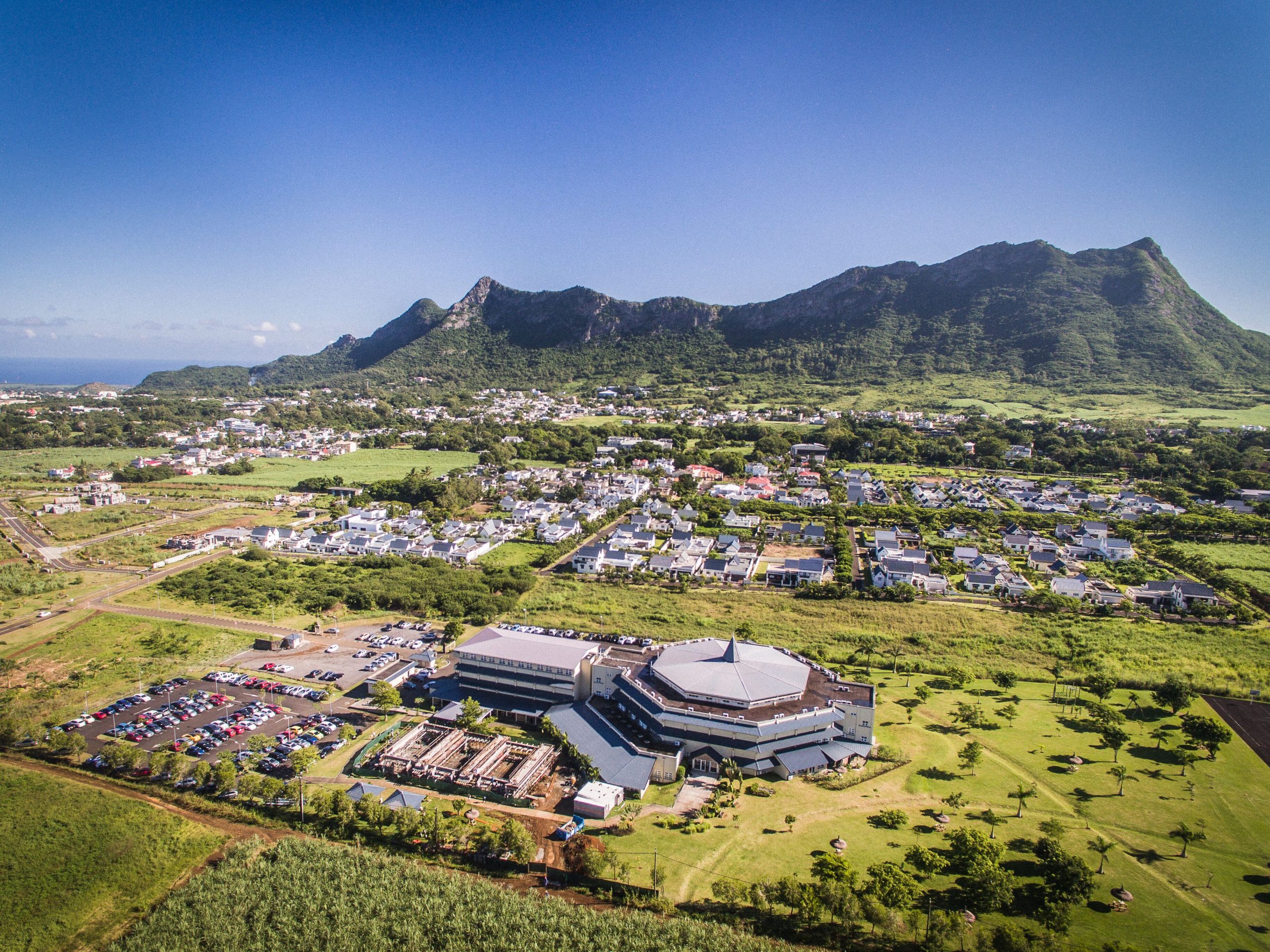
A leading global higher education provider, Curtin University of Australia ranks in the same bracket as Stellenbosch University in The Times Higher Education World University Rankings, i.e. in the top 1% of global universities. It is also placed 55th in the world by Times in the “Young University Ranking” index for 2019.
Curtin Mauritius is one of six campuses, with others in Australia (Perth & Kalgoorlie), Singapore, Malaysia & Dubai in operation. It is situated in the heart of Moka Smart City, a centrally located, vibrant mixed-use development spearheaded by ENL Property. Sitting just outside the main commercial hub of the island, the area is highly sought after by the younger, professional segments of society as well as students.
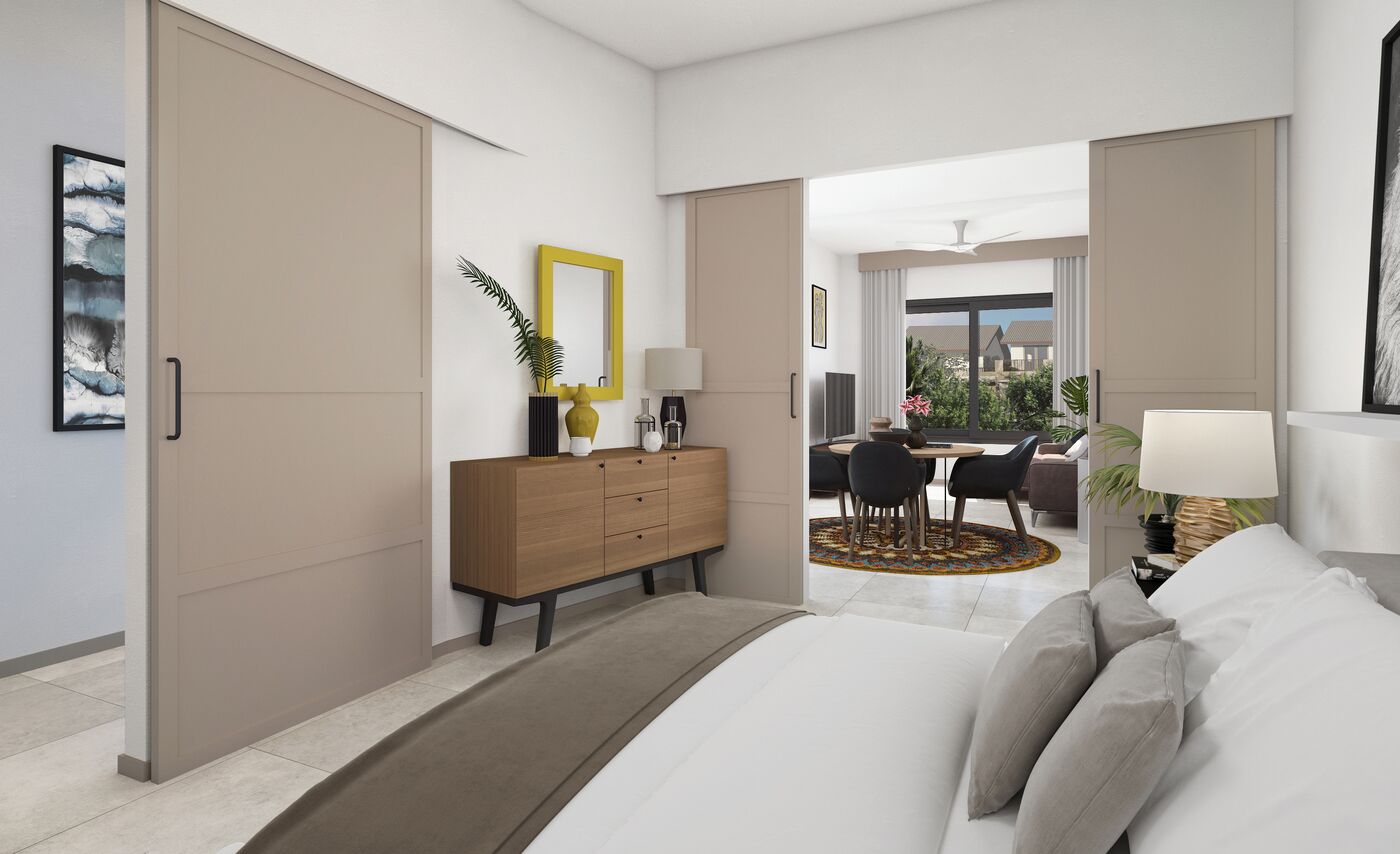
Even though no on-campus student residences per se are available yet, there are apartments for sale in the neighbouring residential area of Les Promenades d’Helvétia starting from approximately ZAR1.7m for a one-bedroom studio. Rental is also possible from ZAR10k per month within walking/cycling distance to the university, with a direct link to the city’s Promenade. Moreover, there are various cultural and sporting events throughout the year and all of the daily conveniences, including a sports centre, a shopping centre, medical facilities and an open-air amphitheatre are within easy reach.
For both universities, tuition fees may vary depending on the programme of study and to a lesser extent, the institution. A standard undergraduate degree would cost around MUR200-300k a year (US$5-7.5k).
Taking into consideration accommodation and general cost of living (food, transport, entertainment, etc.), this education fee should be just over doubled – so it would probably be best to budget about US$14-16,000 (ZAR250,000-300,000) a year all included. Comparatively, while this is 30-40% higher than a local university in South Africa, it is only approximately half the cost of sending one’s child to Perth or the UK for instance. Mauritius also remains the most accessible international higher education destination for South Africans with multiple daily, four-hour flights.
Student-friendly environment
If one is looking to pursue higher education in Mauritius, here are some further more general insights;
University education in Mauritius is mainly delivered in English but a small number of modules may be taught in French – thus it is advisable to double-check before enrolling. The academic year for public universities generally opens in July-August with two semesters of approximately 15 weeks. Some private institutions like Curtin Mauritius also have a February intake.
The rules and regulations laid out by the Passport and Immigration Office and the Ministry of Labour, Industrial Relations and Employment allow foreigners with a student visa valid for at least one year to work part-time for up to 20 hours per week. So students can supplement their income through part-time work. Some universities will make the necessary visa and residence permit arrangements for their international students.

But if not, the application process remains simple with guidance from the relevant institutions. International students must provide evidence of adequate funds to meet the costs of stay and studies. Within one month of arrival, they are also requested to undergo a medical examination and produce a certificate from a registered local practitioner stating that they are not suffering from HIV, hepatitis B, heart disease or chest infection.
Moreover, most institutions will have their students covered by a medical insurance; some parents may however opt for a top-up cover. Foreign students also have free access to the public healthcare system.
Global education experience
Some private institutions like Middlesex University Mauritius and Curtin Mauritius provide a ‘global education’ experience by offering exchange opportunities. Following completion of their first year, students can spend their second or third year at one of these universities’ counterpart campuses around the world.
In terms of extracurricular experiences, the newer, private institutions of Mauritius don’t (yet) offer what the traditional universities in South Africa do from a ‘student life’ perspective. It is therefore important to know that the holistic student experience may not be comparable to the likes of a Stellenbosch or Tukkies currently or of the past – but things are moving quite fast with regard to campus life and the student experience.
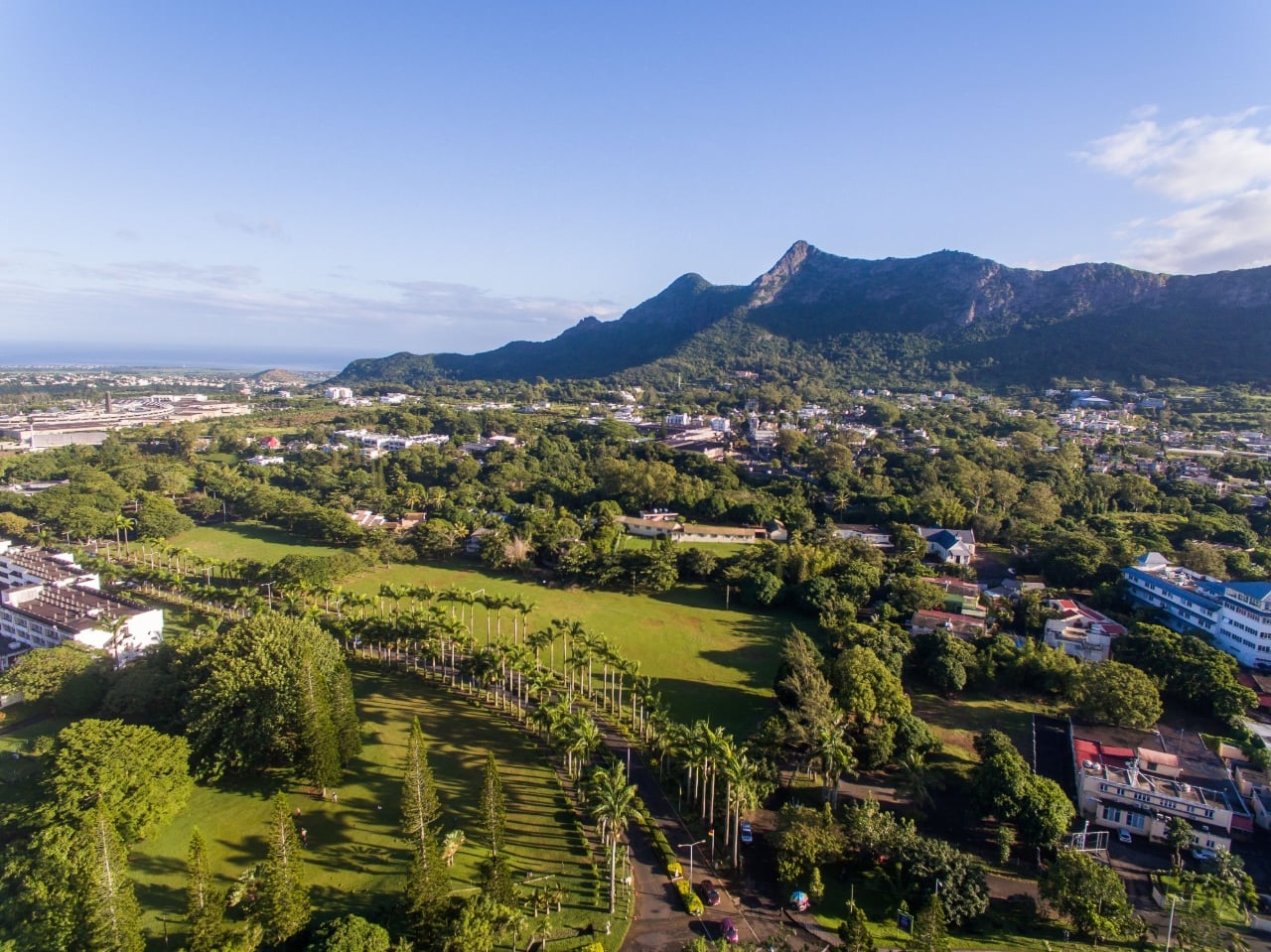
So although this may be a downside, it will hopefully be outweighed by the advantages of studying in Mauritius, such as student safety and security, internationally recognised qualifications, access to further studies abroad and having a tropical island as an outdoor playground.
